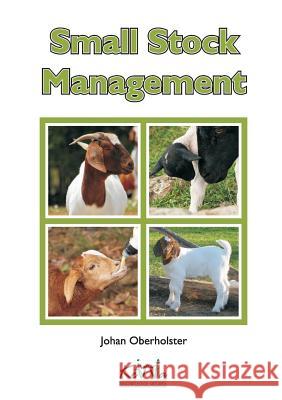Small Stock Management » książka
Small Stock Management
ISBN-13: 9780620478960 / Angielski / Miękka / 2017 / 172 str.
Sheep and goats are of ancient origin in Southern Africa and date back more than 2000 years. Topography and soils influence animal production directly. Infectious diseases and internal and external parasites are severe constraints in sheep and goat production and they are endemic to large regions in Southern Africa. In financial terms it is calculated that reproduction is twenty times more important than carcass qualities, and ten times more important that those characteristics associated with growth and feed conversion. The reproduction tempo further determines the intensity of selection that can be applied and consequently the genetic advances that can be made. As reproduction has a low heredity (10%), (Maree and Casey, 1993), it is the reproduction tempo that determines the financial and economic success. By today’s standards of world population and settlement density, it is no longer possible of making way with ample compensation. New agricultural ways had to be found, supported by technical and veterinarian developments. What once was a visionary dream - improving food production enhanced by pharmaceutical influence - has become a real possibility. Obviously this led to, and will lead to, a search for answers. Recommendations formulated in many ways have already confronted one another, not only in past years. Finding correct solutions depend on how the human community reacts to such a challenge, and organizes its production, and agricultural process. The lack of significant improvement regarding the everincreasing demand for mutton meat has been of concern for some time. Increased economic pressure calls for intensifying the production of ewes. For increased flock fertility, adaptability and reproduction efficiency are major factors. From an economical point of view, a high fertility with regular lambing under good breeding conditions and speedy weight increase is seen as a very important criterion in Small Stock production. The associated problems of low live mass weight are known: weak lambs, poor survival chances and an increased mortality.











